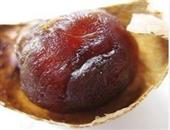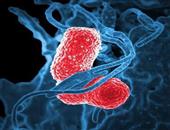发热温度范围全身热疗对免疫功能的影响
(1.第二军医大学附属长海医院放疗科,上海200433;2.上海第二医科大学附属瑞金医院肿瘤放化疗科,上海200025;3.解放军第88医院核医学科,山东泰安271000)
摘要:发热温度范围全身热疗(FR-WBH)可提高免疫效应细胞活性、诱导免疫效应细胞再分布以及影响某些细胞因子和热休克蛋白表达,具有重要的免疫调节作用,是一种安全、有效的辅助性肿瘤治疗手段。
近年来,随着热疗的生理学和病理生理学研究逐步深入,以及更为安全的加温设备和更为精确的测温、控温技术的应用,全身热疗(Wholebodyhyperthermia,WBH)得到了迅速发展,已成为一种重要的辅助性肿瘤治疗手段。
目前临床常用的全身热疗方式主要有两种:高温短时间全身热疗(High-temperatureshort-durationWBH,HS-WBH),即将体中心温度升高至41.8℃、持续1~2小时,和低温长时间全身热疗(Low-temperaturelong-durationWBH,LL-WBH),体中心温度升高至39.5~40℃、持续6小时或以上。后者类似于生理状态下机体对感染的保护性反应,故又称为发热温度范围全身热疗(Fever-rangeWBH,FR-WBH)。研究表明,FR-WBH对机体免疫功能有重要的调节作用。
1提高免疫效应细胞的活性
在小鼠离体和在体实验中均发现,FR-WBH可激活蛋白激酶C(PKC)并刺激产生多种PKC同工酶,PKC特异性抑制剂CalphostinC可抑制此作用,提示FR-WBH可调节细胞信号传导途径中与淋巴细胞增殖和活化相关的关键步骤。而且加温后淋巴细胞以血影蛋白(spectrin)为基础的细胞骨架结构亦明显改变,细胞极性增加,伪足形状改变,免疫活性提高[1、2]。对人脐血和成人外周血T淋巴细胞进行体外加温(≤40℃)后,其细胞毒活性亦提高[3]。
表皮Langerhans细胞是重要的抗原提呈细胞(APC),由其激活的T淋巴细胞介导的免疫反应在机体抗肿瘤免疫中起重要作用。研究发现,FR-WBH后,Langerhans细胞出现更多的斑点状结构,树突减少,而且向淋巴结引流增加,能更有效地提呈肿瘤抗原给效应细胞[4]。健康志愿者接受FR-WBH后,其单核细胞表面内毒素受体CD14和补体受体CD11b的表达均升高,在脂多糖刺激下释放的肿瘤坏死因子(TNF)-α亦增加,证明FR-WBH可直接激活单核细胞,使其对内毒素的反应性提高[5]。
2诱导免疫效应细胞再分布
对不同品系、不同肿瘤类型荷瘤鼠的动物实验表明,FR-WBH后,外周血、脾和腹腔中白细胞数量明显降低,以淋巴细胞减少为主[6]。晚期实体瘤患者的FR-WBH临床I期试验亦见治疗后循环中T淋巴细胞和L-选择素(+)淋巴细胞数量减少[7]。而肿瘤血管直径明显扩大,肿瘤血管和肿瘤基质内有核细胞如类淋巴细胞、巨噬细胞、自然杀伤(NK)细胞及粒细胞等浸润增加,表明FR-WBH可促使免疫效应细胞向肿瘤内转移,其中NK细胞与肿瘤细胞的凋亡关系密切[8]。
同时,FR-WBH可促使淋巴细胞向二级淋巴组织(如外周淋巴结、肠系膜淋巴结和Peyer"s结等)归巢增加,这种增加是通过提高循环中淋巴细胞与肿瘤组织和淋巴组织中特殊的高内皮细胞小静脉(HEV)之间的依赖L-选择素(L-selectin)及α4β7整合素(integrin)的黏附作用实现的,在正常组织血管的鳞状内皮细胞中则无此现象[9、10]。
进一步的研究显示,FR-WBH促进淋巴细胞与HEV黏附是通过提高L-选择素和α4β7整合素的活性实现的,并未改变其细胞表面密度,而且这种黏附作用的提高不仅在体内,而且在体外实验中亦能观察到,表明加温引起的此种效应在局部淋巴组织微环境中即可出现,不需要下丘脑-垂体-肾上腺轴的参与[11、12、13]。另一方面,FR-WBH可增强内皮细胞肌动蛋白的聚合,提高内皮细胞分泌的能刺激α4β7整合素淋巴细胞归巢受体的因子的活性,从而使大量淋巴细胞选择性地转移至感染或肿瘤部位,放大免疫效应[14]。
3对细胞因子表达的影响
实验材料不同、条件不同,FR-WBH对细胞因子表达的影响亦不同。离体时FR-WBH对大血管及小血管内皮细胞黏附分子(ICAM-1,E-selectin,VCAM-1,P-selectin,PECAM-1,PNAd,MAdCAM-1)的表达、细胞因子(IL-1β,TNF-α,IFN-γ,IL-6,IL-11,IL-12,IL-13)的释放和趋化因子(IL-8,RANTES,MCP-1,MIP-1β,MIG)的分泌均无影响[14]。小鼠腹膜内注射脂多糖后热疗,血清中TNF-α、IL-6、急性期蛋白(APPs)α1-酸性糖蛋白和结合珠蛋白(haptoglobin)浓度升高,而单用FR-WBH则无此影响[15]。成人脐静脉内皮细胞FR-WBH后PECAM-1分泌增加,24小时后E-选择素和RANTES亦有增加,VEGF分泌则减少[16]。
4对热休克蛋白的影响
热应激可诱导热休克蛋白(HSPs)和糖调蛋白(GRPs)表达上调,保护细胞自身免受损伤。实验发现,FR-WBH可提高小鼠心、肾、肺、淋巴结和胸腺组织中HSP70及肺、淋巴结和胸腺组织中HSP110的表达,其中在淋巴组织中表达上调最高,可能与加温后免疫应答提高有关。糖调蛋白(GRP170)表达则不受影响[17、18]。
人外周血离体加温后HSP70表达的变化与温度和细胞类型有关,加温至39℃时即在单核细胞中有明显诱导,大于41℃时仅在淋巴细胞和多形核白细胞中有轻微升高。但健康志愿者FR-WBH后HSP70的表达在所有类型淋巴细胞中均有同等程度的升高,并无离体实验时表现出的不同细胞类型间的差异[19]。
5与免疫治疗的协同作用
对人成胶质细胞的体外实验表明,加温至39℃可明显提高干扰素(IFN)的抗病毒活性及对不同肿瘤细胞的抗增殖作用,FR-WBH与IFN联合应用对于免疫力低下的晚期恶性肿瘤患者有治疗价值[20]。FR-WBH可抑制VEGF产生,与TNF联合应用可增强其抗血管生成作用[16]。另有研究发现,FR-WBH可明显提高HSP110和HSP70作为肿瘤特异性疫苗的抗肿瘤活性[18]。FR-WBH亦能提高荷实体瘤小鼠的放射免疫治疗效果。皮下移植了人结肠癌的裸鼠FR-WBH后静脉注射放射性碘标记的抗CEA单克隆抗体,虽未改变抗体的生物学分布,但可提高肿瘤的放射敏感性,明显抑制肿瘤的生长[21]。
6结论
作为一种新的肿瘤治疗方法,FR-WBH可显着增强机体免疫功能,提高放疗、化疗和免疫治疗的效果,且安全无毒,尤其适用于免疫力低下的晚期恶性肿瘤患者。其最优的治疗方案、与其他肿瘤治疗手段的最佳结合方式尚需进一步研究。
Influenceoffever-rangewholebodyhyperthermiaonimmunefunction
CHENHong-lei1JINYe-ning2PENGYong3
(1.DepartmentofRadiationOncology,ChanghaiHospital,SecondMilitaryMedicalUniversity,Shanghai200433,China;2.DeparmentofOncology,RuijinHospital,ShanghaiSecondMedicalUniversity,Shanghai200025,China;3.DepartmentofNuclearMedicine,the88thHospitalofPLA,Tai"anCity,Shangdong271000,China.)
Abstract:Fever-rangewholebodyhyperthermia(FR-WBH)hasanimportantimmunoregulatoryeffect:enhancetheactivityofimmuneeffectorcells,induceimmuneeffectorcellsredistribution,andaffecttheexpressionofsomecytokinesandheatshockproteins.Thistreatmentprotocolcouldbeusedasaneffectiveandnontoxicadjuvanttootheranti-tumortherapies.
Withadvancesinphysiologyandpathophysiologyofhyperthermiaandapplicationsofsaferdevicesandmoreaccuratetemperaturemeasureandcontroltechniques,wholebodyhyperthermia(WBH)developedrapidlyinrecentyears.Ithasbecameanimportantadjuvantanti-tumortreatment.
TwopredominantWBHprotocolspresentlybeingusedintheclinicincludeahigh-temperature,short-duration(HS)WBH,wherecorebodytemperatureisraisedto41.8℃for1~2h,andalow-temperature,long-duration(LL)WBH,wherecorebodytemperatureisraisedto39.5~40℃for6hormore.Thelatterprotocol,comparabletotheprotectivephysiologicalreactionduringinfection,isalsocalledfever-range(FR)WBH.StudieshaverevealedthatFR-WBHhasanimportantimmunoregulatoryeffectonthehost.
1Enhancetheactivitiesofimmuneeffectorcells
FR-WBHtreatmentofmice,invitroandinvivo,resultedinaactivationofproteinkinaseC(PKC)andinducedmanyPKCisozymes.CalphostinC,aspecificinhibitorofPKC,couldinhibitthisaction.ThissuggestedthatFR-WBHcanmodulatecriticalstepsinthesignaltransductionpathwaysnecessaryforlymphocytesactivationandproliferation.Furthermore,thespectrin-basedcytoskeletonoflymphocytesalsoalteredobviouslyafterhyperthermia,whichcausedthecellpolarityincreased,theuropodsformationchanged,andtheimmuneactivityoflymphocytesenhanced[1、2].CytotoxicactivitiesofT-lymphocytesfromadultbloodaswellasfromcordbloodcouldbeenhancedatfebrilerange(≤40℃)[3].
TheLangerhanscells(LCs)ofepidermisareimportantantigen-presentingcells(APC).TheT-lymphocytes-mediatedimmuneresponseinitialedbyLCsplaysanimportantroleinhostanti-tumorimmune.StudieshadshowedthatLCsexhibitedamorepunctatemorphologywithfewerdendriticprocessesafterFR-WBHtreatment.Furthermore,thenumbersofLCsdrainedintothelymphnodesincreased,presentingthetumorantigenstoeffectorcellsmoreeffectively[4].TheexpressionofthemonocyteendotoxinreceptorCD14andthecomplementreceptorCD11bincreasedinhealthyvolunteersafterFR-WBH.TheTNF-αreleasestimulatedbylipopolysaccharidealsoincreased.ThissupportedthatFR-WBHcandirectlyactivatemonocytes,whichenhancetheirabilitytorespondtoendotoxin[5].
2Induceredistributionofimmuneeffectorcells
Variousstudiesinanimaltumormodelsrevealedthatleukocytenumbersintheperipheralblood,spleenandperitonealcavityaresignificantlydecreasedimmediatelyafterFR-WBHtreatment,reflectingthedecreaseinlymphocytenumbers[6].AphaseIclinicaltrialofpatientswithadvancedsolidtumorsshowedthatthenumbersofcirculatingT-lymphocytesandL-selectinpositionlymphocytesweredecreasedafterFR-WBHtreatment[7].However,thediameterofbloodvesselswithinthetumorwereobviouslyexpended.Theincreasednumbersofnucleatedbloodcells,suchaslymphocyto-likecells,macrophages,naturalkiller(NK)cellsandgranulocytes,wereobservedinthetumorvasculatureandinthetumorstroma.ThisindicatesthatimmunoeffectorcellsmayhavegreateraccesstotheinteriorofthetumorundertheFR-WBHstimulation.AndthetumorcellapoptosisappearstobeduelargelytotheNKcells[8].
Meanwhile,FR-WBHstimulatedlymphocyteshomingtosecondarylymphoidtissues,suchasperipherallymphnodes,mesentericlymphnodesandPeyer"spatch,byincreasingL-selectinandα4β7integrin-dependentadhesiveinteractionsbetweencirculatinglymphocytesandspecializedhighendothelialvenules(HEV)inlymphoidtissuesandtumortissues.Incontrast,FR-WBHdidnotaugmentadhesioninsquamousendotheliumofnormalbloodvessels[9、10].
FurtherstudiesrevealedthatFR-WBHstimulatesadhesionbetweenHEVandlymphocytesbyenhancingtheactivitiesofL-selectinandα4β7integrinratherthantheircellsurfacedensity.Andsimilarincreasesalsooccurredinvitro,indicatingthatthelocallymphoidtissuemicroenvironmentissufficientforthisthermicresponse,notrequiringinvolvementofhypothalamus-pituitary-adrenalaxis[11、12、13].Ontheotherhand,FR-WBHaugmentedactinpolymerizationinendithelialcellsandenhancedtheabilityofendothelial-derivedfactorstotransactivatetheα4β7integrinlymphocytehomingreceptor.Massivelymphocytesselectivelymigratetothesitesofinfectionortumor,amplifyingtheimmuneresponse[14].
3Effectsoncytokinesexpression
Underdifferentenvironments,theeffectsofFR-WBHoncytokinesexpressionarealsodifferent.Invitro,fever-rangehyperthermiadidnotaffecttheexpressionofadhesionmolecules(ICAM-1,E-selectin,VCAM-1,P-selectin,PECAM-1,PNAd,MAdCAM-1),thereleaseofcytokines(IL-1β,TNF-α,IFN-γ,IL-6,IL-11,IL-12,IL-13)andthesecretionofchemokines(IL-8,RANTES,MCP-1,MIP-1β,MIG)[14].WhenmicereceivedFR-WBHjustafterintraperitonealadministrationoflipopolysaccharide,serumconcentrationsofTNF-α,IL-6,theacutephaseproteins(APPs)α1-acidglycoproteinandheptoglobinincreased.FR-WBHalonedidnotaffectserumconcentrationsofthesecytokines[15].FR-WBHtreatmentincreasedthePECAM-1productioninhumanumbilicalveinendothelialcells.IncreasedE-selectinandRANTESlevelswerealsoobservedat24haftertreatment.However,theproductionofVEGFdecreased[16].
4Effectsonheatshockproteins
Heatstresscaninducetheupregulationofheatshockproteins(HSPs)orglucoseregulatedproteins(GRPs)expression,whichhelpprotectcellsagainstdamages.Studiesshowedthat,FR-WBHtreatmentofmicedidenhanceHSPexpression:HSP70inheart,kidney,lung,lymphnodesandthymus;andHSP110inlunglymphnodesandthymus.ThelymphoidtissuesdisplayedthemostconsistentupregulationofbothHSP70andHSP110.Thismayrelatetotheenhancedimmuneresponseduringfebriletemperatures.Incontrast,expressionofGRP170wasnotaffectedbyFR-WBHinanytissues[17、18].
HeattreatmentofhumanperipheralbloodinvitroshowedthatthechangeofHSP70expressiondependsontemperatureandcelltype.At39℃,astrongHSP70inductionwasseeninmonocytes.Upto41℃,HSP70increasedonlyslightlyinlymphocytesandpolymorphonuclearleukocytes.However,inhealthyvolunteers,HSP70expressionenhancedinallkindsoflymphocyteswithcomparableafterFR-WBH,withoutthecelltype-specificvariationsasobservedinvitro[19].
5Cooperationwithimmunotherapy
Treatmentofhumanfibroblastcellswithfever-rangehyperthermia(39℃)invitrosignificantlyenhancedtheantiviralactivityandantiproliferativeactivityondifferenttumorcellsofinterferon(IFN).ThecombinationofFR-WBHandIFNmayhavetherapeuticalvaluestolatestagecancerpatientswhohaveaweakerimmunesystem[20].Fever-rangehyperthermiadecreasedtheproductionofVEGF.WhencombinatedwithTNF,thethromboticeffectsontumorneovasculaturemaybeenhanced[16].Anotherstudyshowedthatfever-rangehyperthermiasignificantlyenhancedthespecificvaccineefficiencyofHSP110andHSP70[18].FR-WBHalsoenhancedthetherapeuticoutcomeofradio-immunotherapyformicebearingsolidcancers.AfterFR-WBH,nudemicebearinghumancoloncancerxenograftsreceivedintravenousinjectionofI-labelledanti-carcinoembryonicantigen(CEA)monoclonalantibody.Althoughhyperthermiadidnotalterthebiodistributionoftheantibody,thegrowthoftumorwassignificantlyinhibitedbyincreasingtheradiosensitivityofthetumor[21].
6Conclusion
Asanewanti-tumortreatment,FR-WBHcansignificantlyenhancethehostimmunefunctionandincreasethetherapeuticefficacyofradiotherapy,chemotherapyandimmunotherapywithouttoxicity,especiallyapplyingtolatestagecancerpatientswhohaveaweakerimmunesystem.Itsoptimaltreatmentprotocolandthebestcombinedmodalitywithotheranti-tumortreatmentsarerequiredfurtherresearch.
References:
[1]DiYP,RepaskyEA,SubjeckJR.DistributionofHSP70,proteinkinaseC,andspectrinisalteredinlymphocytesduringafever-likehyperthermiaexposure[J].JCellPhysiol,1997,172(1):44-54.
[2]WangXY,OstbergJR,RepaskyEA.Effectoffever-likewhole-bodyhyperthermiaonlymphocytespectrindistribution,proteinkinaseCactivity,anduropodformation[J].JImmunol,1999,162(6):3378-3387.
[3]ShenRN,LuL,YoungP,etal.Influenceofelevatedtemperatureonnaturalkillercellactivity,lymphokine-activatedkillercellactivityandlectin-dependentcytotoxicityofhumanumbilicalcordbloodandadultbloodcells[J].IntJRadiatOncolBiolPhys,1994,29(4):821-826.
[4]OstbergJR,PatelR,RepaskyEA.Regulationofimmuneactivitybymild(fever-range)wholebodyhyperthermia:effectsonepidermalLangerhanscells[J].CellStressChaperones,2000,5(5):458-461.
[5]ZellnerM,HergovicsN,RothE,etal.Humanmonocytestimulationbyexperimentalwholebodyhyperthermia[J].WienKlinWochenschr,2002,114(3):102-107.
[6]OstbergJR,RepaskyEA.Comparisionoftheeffectsoftwodifferentwholebodyhyperthermiaprotocolsonthedistributionofmurineleukocytepopulations[J].IntJHyperthermia,2000,16(1):29-43.
[7]KraybillWG,OlenkiT,EvansSS,etal.AphaseⅠstudyoffever-rangewholebodyhyperthermia(FR-WBH)inpatientswithadvancedsolidtumors:correlationwithmousemodels[J].IntJHyperthermia,2002,18(3):253-266.
[8]BurdR,DziedzicTS,Xuy,etal.Tumorcellapoptosis,lymphocyterecruitmentandtumorvascularchangesareinducedbylowtemperature,longduration(fever-like)wholebodyhyperthermia[J].JCellPhysiol,1998,177(1):137-147.
[9]EvansSS,WangWC,BainMD,etal.Fever-rangehyperthermiadynamicallyregulateslymphocytedeliverytohighendothelialvenules[J].Blood,2001,97(9):2727-2733.
[10]OstbergJR,GellinC,PatelR,etal.Regulatorypotentialoffever-rangewholebodyhyperthermiaonLangerhanscellsandlymphocytesinanantigen-dependentcellularimmuneresponse[J].JImmunol,2001,167(5):2666-2670.
[11]WangWC,GoldmanLM,SchleiderDM,etal.Fever-rangehyperthermiaenhanceL-selectin-dependentadhesionoflymphocytestovascularendothelium[J].JImmunol,1998,160(2):961-969.
[12]EvansSS,BainMD,WangWC.Fever-rangehyperthermiastimulatesalpha4beta7integrin-dependentlymphocyte-endothelialadhesion[J].IntJHyperthermia,2000,16(1):45-59.
[13]EvanssSS,SchleiderDM,BowmanLA,etal.DynamicassociationofL-selectinwiththelymphocytecytoskeletalmatrix[J].JImmunol,1999,162(6):3615-3624.
[14]ShahA,UngerE,BainMD,etal.Cytokineandadhesionmoleculeexpressioninprimaryhumanendothelialcellsstimulatedwithfever-rangehyperthermia[J].IntJHyperthermia,2002,18(6):534-551.
[15]OstbergJR,TaylorSL,BaumannH,etal.Regulatoryeffectsoffever-rangewhole-bodyhyperthermiaontheLPS-inducedacuteinflammatoryresponse[J].JLeukocBiol,2000,68(6):815-820.
[16]GnantfMF,TurnerEM,AlexanderHR.Effectsofhyperthermiaandtumournecrosisfactoroninflammatorycytokinesecretionandprocoagulantactivityinendothelialcells[J].Cytokine,2000,4(4):339-347.
[17]OstbergJR,KaplanKC,RepaskyEA.Inductionofstressproteinsinapanelofmousetissuesbyfever-rangewholebodyhyperthermia[J].IntJHyperthermia,2002,18(6):552-562.
[18]WangXY,KazimL,RepaskyEA,etal.Characterizationofheatshockprotein110andglucose-regulatedprotein170ascancervaccinesandtheeffectsoffever-rangehyperthermiaonvaccineactivity[J].JImmunol,2001,166(1):490-497.
[19]OehlerR,PuschE,ZellnerM,etal.Celltype-specificvarivationsintheinductionofhsp70inhumanleukocytesbyfeverlikewholebodyhyperthermia[J].CellStressChaperones,2001,6(4):306-315.
[20]PayneJ,NairMP,AmbrusJL,etal.Mildhyperthermiamodulatesbiologicalactivitiesofinterferons[J].IntJHyperthermia,2000,16(6):492-507.
[21]SagaT,SakaharaH,NakamotoY,etal.Enhancementofthetherapeuticoutcomeofradio-immunotherapybycombinationwithwhole-bodymildhyperthermia[J].EurJCancer,2001,37(11):1429-1434.
(中华热疗学会)












